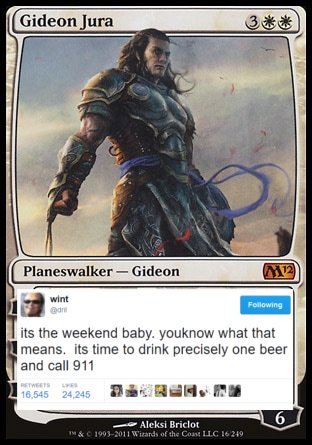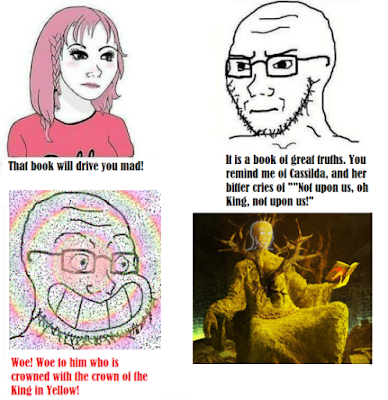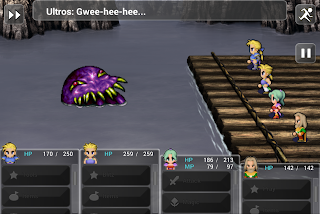I kinda messed up and didn't do SCP-100 in the last entry, which is a shame because it's actually a really good one.
I should note that I'm curating these for gaming people, not necessarily for gaming. As you can see, some of these are very open-ended, others are more like oddly-formatted short fiction with a beginning, middle and end. Ripe for adaptation, perhaps, but not necessarily easy to just directly import. These are the ones I consider to have just the right combination of imagination, missing pieces, fun, the roughness of amateur-created writing, and the polish of easy digestibility. Also that strange feeling when you read something and think "this could make a good scenario."
Finally, there are some SCPs that have puzzle or game elements themselves. Trying to figure out SCP-194 (linked below) is fun!
In these second hundred SCPs, we see the development of new areas of SCP worldbuilding (Marshall, Carter and Dark, and one of my favorites, Dr. Wondertainment) as well as an early example of a good medical SCP, SCP 103, the Never-Hungry Man. Of the "gore" SCPs, this is one of the few that emphasizes that medical doctors actually do try to treat patients and are concerned about them. Lots of bad SCPs have high body counts just for the sake of high body counts, and portray the SCP foundation as being more or less maniacal; this one rather drily reports a medical team refusing to do what their boss orders them to do to a patient, being forced to do it anyway, and the boss being "court-martialed". Interesting... But you can also see the "torture/just do horrible things to test subjects" style even in otherwise pretty good entries - see the Anachronistic TV, which provoked them to try to torture people with it rather than figure out how it was making episodes of I Love Lucy that never existed... Compare to The Painting (SCP-151), (not included below, but a pretty basic SCP), where obviously the real question is how the Painting was made!
As you can see from the below, I tend to like SCPs that leave people changed or strained rather than dead or mangled. The Variable Coaster is a good example. People ride the coaster for, subjectively, months, but they are there only for three minutes. This approach to horror/fantasy eventually would manifest in some of the SCP wiki's greatest works, the "infohazard" or "memetic" anomalies, which approached the Lovecraftian idea of knowledge or experiences as the horror itself.
Notable, below, is a unique version of the "creepy ventriloquist dummy", not animate, exactly, but fearful nonetheless...




